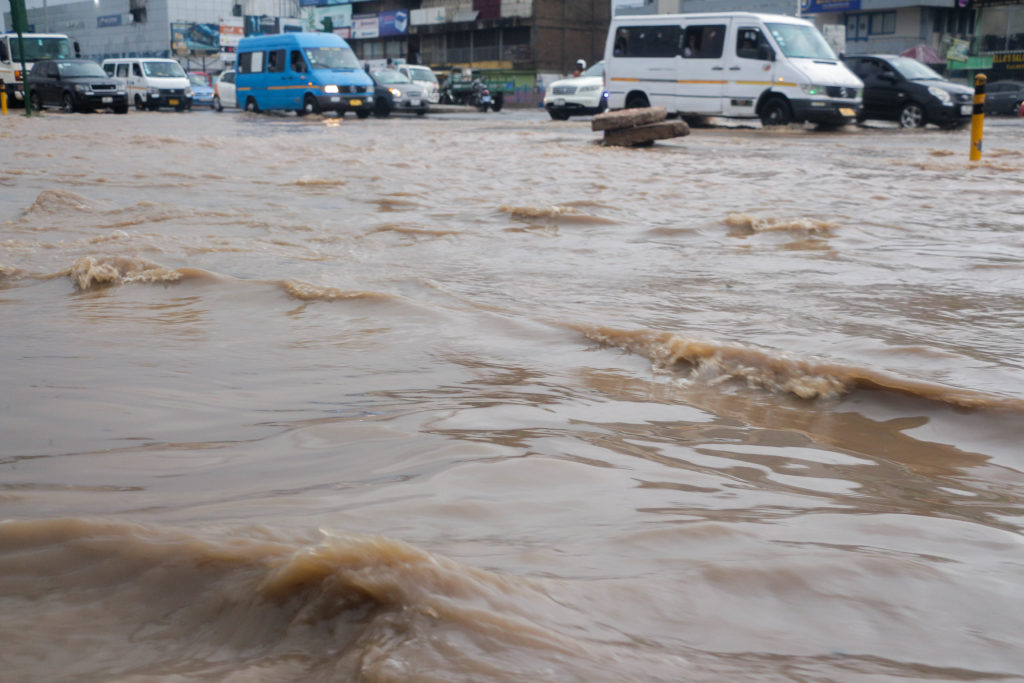
A heavy downpour on the evening of Thursday, March 13, caused severe flooding in parts of Accra, particularly along the Ofankor Barrier stretch of the N1 Highway. The floodwaters led to massive traffic congestion and left numerous pedestrians stranded as major roads became impassable.
The flooding, which occurred after just a few hours of rain, resulted in a long traffic buildup stretching from the Achimota Old Station to Tantra Hill. In an attempt to escape the rising water levels, some motorists reversed their vehicles off the main highway near the Neoplan Station to find alternative routes toward Taifa and nearby communities. However, several vehicles were either completely submerged or stuck in the floodwaters, rendering them immobile.
Other flood-prone areas, including Shiashie, also experienced severe flooding, turning streets into temporary rivers. Businesses and homes in the area were affected, further highlighting the recurring problem of poor drainage in Ghana’s capital.
Commuters traveling toward Amasaman, Pokuase, and other parts of the Greater Accra Region were caught in a gridlock, with commercial minibusses (trotros), private vehicles, and buses struggling to navigate through the waterlogged roads. Pedestrians attempting to cross flooded streets were forced to wait for the waters to subside before continuing their journeys.
The flooding comes just days after the government’s Anti-Flood Taskforce conducted an aerial assessment of Accra’s flood-prone areas. During the tour on Tuesday, March 11, the task force identified choked drains, illegal structures on waterways, and unregulated construction as the primary causes of Accra’s perennial flooding. The team had pledged to take action to mitigate flooding before the peak of the rainy season.
Despite these efforts, Thursday’s downpour exposed the persistent challenges posed by poor drainage and urban planning in the city, leaving residents frustrated and calling for urgent solutions.
 GhArticles.com Every News in Detail
GhArticles.com Every News in Detail



